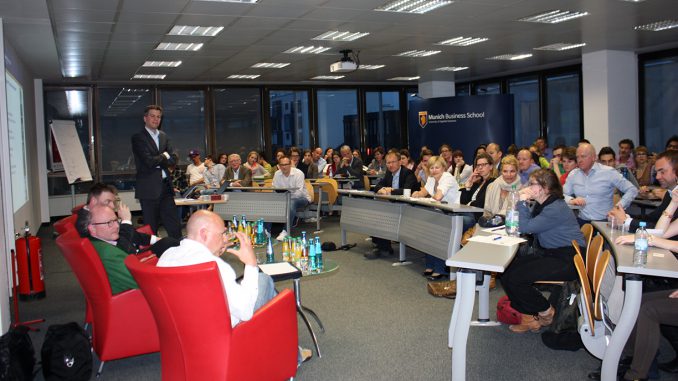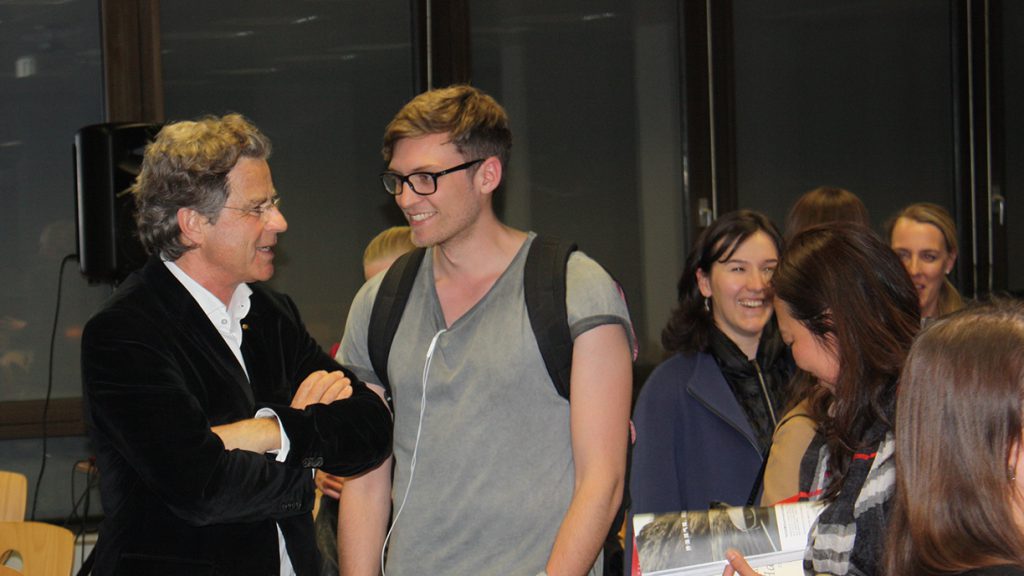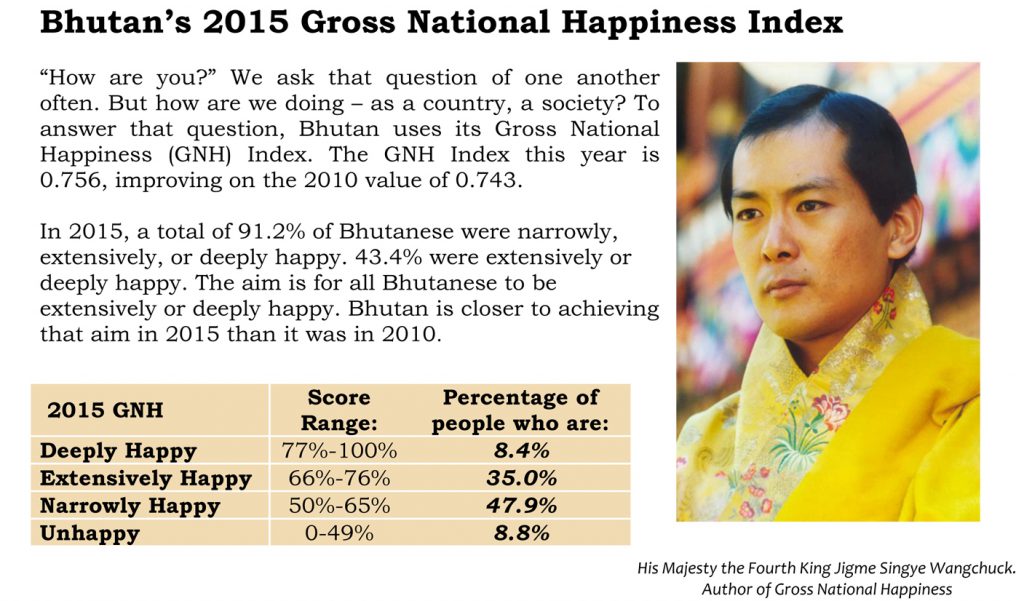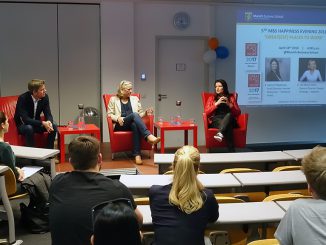
These months, the “Success Factor Happiness” course is held already for the third time as part of the Master International Business study program at Munich Business School. A Happiness course at a business school? Many may wonder about the interrelationship and the principal assignment of happiness to a business context. The course includes broad knowledge from the highly interdisciplinary research on happiness and is mainly inspired by the “Mindful Business” or also “Conscious Business” movement in the USA (and particularly in California).
Happiness and well-being – a “future technology”?
Progressively, “happiness and well-being” are seen as the most important impulse for the next long-term economic cycle after the age of the Internet (the so-called sixth Kondratieff). In addition to bringing forth an increasing range of products and services in this area, the topic of happiness is gradually also gaining more attention and awareness in German companies.
SAP, for example, employs a “Director of Mindfulness”, the credit institute Sparda Bank in Munich has internally and externally made commitments to common welfare – and the employees of BMW Motorcycles compiled their own code of values around the matters of joy. In contrast hereto, the world of strictly hierarchical companies – managed in an authoritarian manner – is breaking down: not only VW and Deutsche Bank have clearly lost their attractiveness as employers for young MBS graduates.
The aspects of happiness
In five topical blocks, the Happiness course teaches students the most important findings of recent and traditional happiness research and their application in business:
Philosophy of happiness: Instructed and tutored by MBS lecturer Dr. Florian Langenscheidt, students are familiarized with the basic insights of various philosophers from different epochs and cultures. After all, the issue of happiness in life is probably the question that science has discussed for the longest ever – ranging from Aristotle and Seneca to John Stuart Mill, Laozi (老子), Confucius (孔子) and others.
 Psychology of happiness: In this part of the course, tutored and instructed by André Daiyû Steiner, students are familiarized with happiness-related psychological basics. Latest findings from neuroscience, as for example neuroplasticity, i.e. the targeted and deliberate change of the (physical) brain by corresponding exercises, are treated before the background of happiness. As ZEN teacher, André Daiyû Steiner introduces basic mindfulness exercises as practical exercises which can help many students to gain new insights about themselves.
Psychology of happiness: In this part of the course, tutored and instructed by André Daiyû Steiner, students are familiarized with happiness-related psychological basics. Latest findings from neuroscience, as for example neuroplasticity, i.e. the targeted and deliberate change of the (physical) brain by corresponding exercises, are treated before the background of happiness. As ZEN teacher, André Daiyû Steiner introduces basic mindfulness exercises as practical exercises which can help many students to gain new insights about themselves.
Happiness at work: In a first part, students learn how to find a job that might make them happier than any randomly chosen other job. The meaning of “Passion and Purpose” plays an important role here (also refer to the MBS Working Paper The Quintuple Bottom Line Model – an innovative approach to analyzing happiness at work applied to the Generation Y in Germany which was compiled in cooperation with MBS Master graduate, Johanna Christ; the model described in the paper was particularly inspired by the Canadian entrepreneur, Bruce Poon Tip).
The second part puts forth the basic features of mindful company management and company culture that goes with it. These new approaches also pay financially. Various studies have already shown that mindfully managed companies achieve an above-average increase of stock market value.
Marketing, branding and happiness: An increasing number of brands uses the findings of happiness research for marketing their products and services. By numerous case studies, the students learn to determine and analyze these mechanisms. This usually leads to very controversial discussions about exploiting the happiness factors for ultimately keeping up the hedonistic treadmill in which most consumers in Germany are stuck. However, the block will also address the potential societal benefits of the corresponding elements of happiness research in marketing.
Happiness economics: It is obsolete to measure an economy’s success by the growth rate of the gross national product. At the World Economic Forum in Davos this year, the discussion of alternative indicators was one of the central topics. With its method for measuring the gross national happiness (GNH), the small kingdom of Bhutan in the Himalayas belongs to the pioneers of more holistic measuring parameters that also take the population’s well-being into consideration (the results of the surveys, conducted at the highest professional standards, are regularly published on www.grossnationalhappiness.com). The teaching compares various index figures and analyses their contributing components.

Learning and self-experience included
In the “Success Factor Happiness” course, students not only learn new content; by numerous exercises, they also gain new insights about themselves. In a self-reflecting essay at semester’s end, the experiences from the course are compiled and re-processed and may even cause some of the participants to critically scrutinize their original goals.
More and more of MBS students seize the opportunity to delve deeper into some aspects of the subject in their Master thesis. And if, after graduation, the participants of the course will still remember the basic findings of the course and will then make a productive contribution to society, the ultimate goal of this innovative course will have been reached.
© figure “Bhutan’s 2015 Gross National Happiness Index”: Centre For Bhutan Studies & GNH Research




